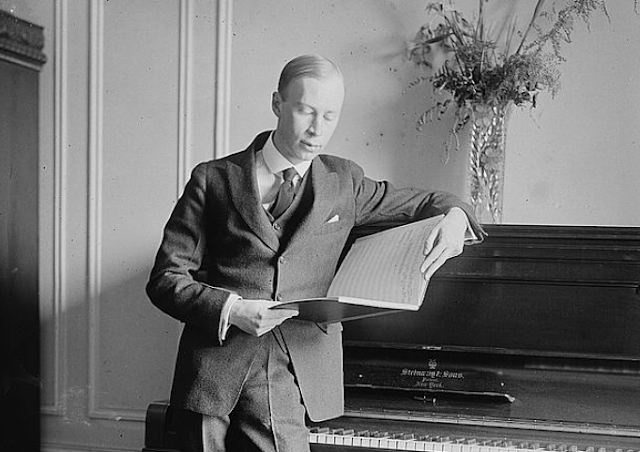The Sun-Times doesn't have its deep archive online, and since I refer to this story in my Sunday column, I thought I would post it here, where readers could see it. It ran under the headline, "Pretty, Witty—and Male; Cross-dressers keep culture close to vest."
With a rhinestone nail charm centered on each red fingernail, a dab of blush at her decolletage, and deftly applied make-up, it's easy to believe her when she says she spent three hours getting ready to go out.
The shimmery blue and silver dress is custom-made, she says, and it's easy to believe that, too, since with the spike heels, Jenny tops out at perhaps 6-foot-7.
"I'm a bigger girl, I know," she says, smiling radiantly. "I can't go out to a mall—hey, I've got a football player's shoulders.
So instead, Jenny has come here, to a banquet hall on the Northwest Side of Chicago, where the city's tiny, secretive transvestite community is having one of its many regular social functions—this one a dinner and gala pageant to select "Miss Chicago Gender Society 1992."
About 110 people—mostly men dressed as women, with a smattering of wives and girlfriends and boyfriends and even somebody's mother—mingle and chat, complimenting each others' dresses, primping at their wigs, sipping drinks.
Less than 15 years ago, it was against the law in Chicago for people to wear clothing of the opposite sex. The ordinance was in place until 1978, when the Illinois Supreme Court overturned the conviction of two men arrested in 1974 for wearing dresses.
Today, several hundred people belong to Chicago's two transvestite groups—the Chicago Gender Society, which admits any cross-dresser of any sexual orientation, and the Society of Second Self, or Tri-S, which limits its members to heterosexual transvestites and is more family-oriented.
Still, transvestism is one of society's deepest taboos. While homosexuals have made progress in becoming better understood and, in places, accepted by society as a whole, transvestites struggle against a stigma so strong that few feel they can risk even revealing their real names.
The president of Tri-S refused to have his picture taken, even dressed as Naomi, for fear fellow lawyers at his Loop law firm would recognize him. The president of the Gender Society, posing for a newspaper picture, quips, "My life is over."
"I personally don't care (if people know I'm a transvestite)," says Leslie, a six-footer in a white mini-skirt and hoop earings who works as a contractor in the suburbs. "But I have to protect the rest of those people: my 7-year-old son, my wife, my other family members."
Most transvestites describe themselves as heterosexual, though the term sometimes gets stretched a bit. One transvestite at the gala says he is heterosexual, but adds that he lives as a woman and dates men.
Still, many transvestites have wives, families, and are not effeminate when dressed as men, many say.
"I'm straight, married, I have a 9-to-5 job, a sales job," says Jenny. "I battle over turf with the rest of the sales people. I play baseball."
Indeed, one academic explanation of transvestism is that it is the ironic result of a sort of super-masculinity.
"One of the ways we understand transvestism is an attempt to integrate what are otherwise carefully separate parts of one's self," says Dr. Richard Carroll, director of the Sex and Marital Therapy program at the University of Chicago. "Some men, in most of their lives, are aggressive and hypermasculine, and it's as if some men have split off the feminine aspects of themselves so completely they have to cross dress and play a role to get in touch with the more feminine part of themselves."
What is a mystery, however, is whether the strong masculinity is a cause of, or a reaction to, transvestism.
"A lot of transvestites will overcompensate in male life," says Anjelica, who worked for years as a mailman "partly because of the uniform."
Transvestites themselves, who generally say they began dressing in female clothing at a very young age, describe cross-dressing as a compulsion.
"I just have to do it; it's like this urge," says Leslie.
While transvestites are initially drawn to women's clothing as an erotic experience, the appeal often changes into a general state of well-being.
"The sexual element becomes less important and dressing and passing as female more important. Just the experience of being cross-dressed is associated with a sense of calm, peace, and freedom from stress," says Carroll. "For many transvestites, the sexual aspect becomes less important as they grow older. It just feels peaceful to them. Some men describe it like finally being at home."
Despite the calm transvestites find in cross-dressing, they can face a variety of severe emotional problems, the result of conflict between their inner impulses and the outer dictates of society. Transvestites are thought to commit suicide more frequently.
Pervasive public ridicule, which can result in physical attack, also is a problem.
Then there is the issue of dealing with their families. Some wives divorce their husbands after learning that they are transvestites. Others grow to accept it.
Nicole, attending the Gender Society gala with her husband, Gloria, was married for four years before she discovered women's clothing in the trunk of their car.
"I was devastated—I thought he had a girlfriend," she says, holding back tears. Learning that it was her husband's clothing came as a relief. "I thought, 'Oh, is that all? We don't have to get a divorce.' "
Asked if she liked the fact that her husband is a transvestite, Nicole says: "I understand she has her needs." But some wives actually feel closer to their husbands when they are in their female roles.
"In some ways, the partner preferred him when he was cross-dressed," says Carroll, referring to a high-level business executive and his wife. "He was calmer, open, more relaxed and more intimate."
And not all transvestites tell their wives. Michele, attending the gala while his wife of 22 years was out of town, says the wife has no idea of his transvestism and he isn't going to tell her. "Why create a problem?" he says.
Marriage can actually facilitate the development of a man's transvestism, since it takes him out of the posturing of the dating world and, not incidentally, provides ready access to women's clothing.
"In the dating scene, you have to be one of the macho guys, a male male," says one cross-dresser. "When I got married, I didn't have to go through that ritual, all that pressure trying to find a woman."
Several businesses in Chicago cater to transvestites. In addition to a photography studio, a beauty salon and a meeting service, there is at least one boutique, a nondescript storefront on Elston Avenue.
Inside the boutique are racks of Cover Girl cosmetics, costume jewelry, jumbo-size Frederick's of Hollywood-type undergarments and clothes, mostly culled from secondhand shops.
"We try to keep a low profile," says the owner, who goes by the name Karen when dressed as a woman. "They come here because we are discreet, quiet and no one bothers them."
While he talks, four men, one at a time, slip into the store and head to the back.
In the back of the store are a variety of transvestite publications on dressing, makeup and feminine deportment, as well as racks of paperback novels with titles such as "Trio in Skirts," "Girl for a Week," and "Men in Skirts." Karen describes them as "basically good, wholesome fantasies," though it is safe to say not everyone would agree.
A common refrain heard again and again from cross-dressers is they are not trying to hurt anybody, just be themselves, living life the best they can.
"Once you get over the question of men dressing as women, there is really very little unusual about it," says Karen, and, indeed, perhaps what is most unexpected about transvestites is how ordinary their lives can be, outside of their cross-dressing.
Karen has a photo album of himself, in women's clothes, posing inside suburban interiors, mugging with friends at parties, dressed as a cheerleader, as Little Bo Peep, in an evening gown.
But in the back of the album are a different set of photos—Ebbets Field memorabilia, Stan Musial's locker, a bat once swung by Babe Ruth—taken during a cherished visit to the Baseball Hall of Fame in Cooperstown, N.Y.
"That's my primary interest," Karen says.
—Originally published in the Sun-Times, May 24, 1992










